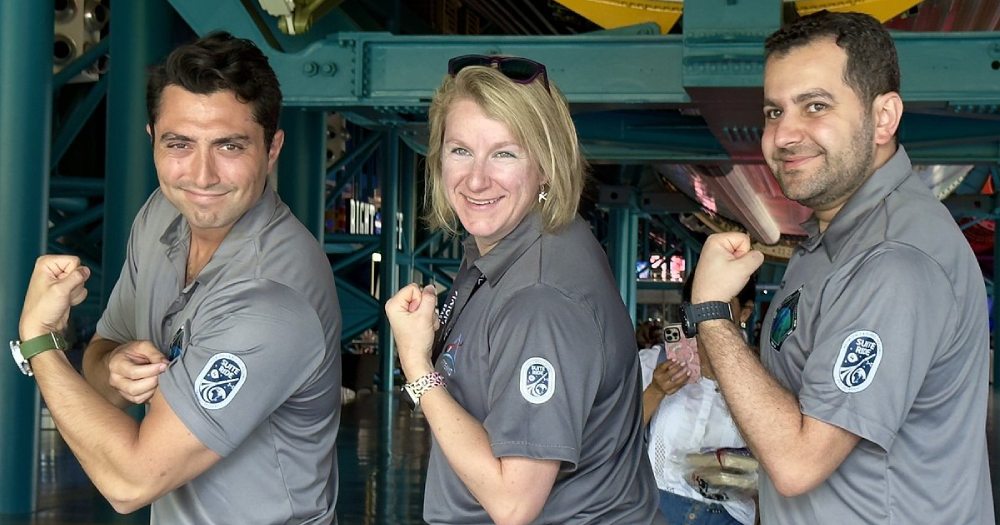UAE sends diabetes study into orbit

Who says space is off-limits for people with diabetes? Certainly not the UAE. In a bold leap for medicine and human potential, a team of scientists and astronauts aboard Axiom Space's fourth private mission, Ax-4, has taken diabetes research into orbit. The star of this show is a project called Suite Ride, launched by Burjeel Holdings in partnership with Axiom Space. This mission isn't just about rockets and research — it's about rewriting what's possible for millions who live with insulin-dependent diabetes.
"Too often, a diagnosis like diabetes quietly tells people that there are limits now," said Dr. Shamsheer Vayalil, Founder and Chairman of Burjeel Holdings. "Through this collaboration, we want to challenge that thinking — and there's no better place to do it than space."
How does it work?
The Suite Ride study takes cutting-edge diabetes tech and sends it to the stars. Here's how it's unfolding:
- Astronauts are testing Continuous Glucose Monitors (CGMs) — tiny sensors worn on the skin that track blood sugar 24/7 — in microgravity.
- These CGMs will be monitored during preflight, inflight, and postflight phases to see if they remain accurate and reliable in space.
- The mission also evaluates how insulin behaves in space, checking whether its potency or stability changes after exposure to microgravity.
Dr. Mohammad Fityan, Chief Medical Officer at Burjeel Medical City and clinical lead for the study, is working side-by-side with Axiom's team to analyze the results. "We're confident that the valuable insights gained will help improve healthcare access in underserved and hard-to-reach communities around the world," he shared.
Why does it matter?
Right now, people with insulin-dependent diabetes are disqualified from spaceflight. That's not just policy — it's a limitation deeply embedded in how we think about chronic illness and human performance.
This research says: maybe it's time to flip that script.
- If CGMs and insulin can work safely and accurately in orbit, we can finally open the door for diabetic astronauts — yes, really.
- The mission could spark remote healthcare breakthroughs for communities far from hospitals, whether on Earth or on Mars.
- With diabetes projected to hit 783 million people globally by 2045, this isn't niche science. It's the future of medicine.
The context
The Ax-4 mission, which finally launched from Kennedy Space Center after a few weather-related delays, is a global affair. It's commanded by NASA legend Peggy Whitson, with an international crew representing India, Poland, and Hungary. They'll run more than 60 experiments over 14 days aboard the International Space Station (ISS), including Suite Ride.
Back home, the UAE is buzzing. Burjeel Medical City is celebrating with an exhibit that lets the public peer into the science behind Suite Ride. Even the UAE Embassy in Washington, D.C. has spotlighted the project as a national milestone.
The message is clear: the UAE isn't just riding the wave of space exploration — it's steering the ship. And with Suite Ride, they're proving that innovation isn't just about going farther. It's about lifting more people up along the way.
💡Did you know?
You can take your DHArab experience to the next level with our Premium Membership.👉 Click here to learn more
🛠️Featured tool
 Easy-Peasy
Easy-Peasy
An all-in-one AI tool offering the ability to build no-code AI Bots, create articles & social media posts, convert text into natural speech in 40+ languages, create and edit images, generate videos, and more.
👉 Click here to learn more


